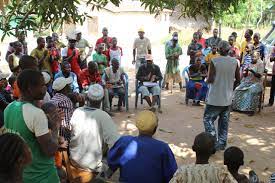By Ranger
Without a doubt, given the increasing prices of the staple food rice and the huge amount of foreign exchange used to import it every year, it was received by the population as welcome news that the Government and private sector partners will embark on multi-million dollars mechanized rice farming at the Rhombeh swamp in Lokomasama Chiefdom in Port Loko district and the Tormabum boliland in the South.
These two projects, the Government said, will reduce rice import, save foreign exchange, increase farmers’ income, create thousands of new direct and indirect jobs as it will contribute to the quest for food security.
Yet a year or more after the Rhombeh Project was launched with a lot of fanfare, the people of Lokomasama who are the direct beneficiaries wonder why up to now they see no work being done.
As global food prices due to increase in shipping, fuel and fertilizer costs and Ukraine-Russia war, it makes good sense for poor developing countries to focus greater attention to the production of the food they eat at home. The focus should not only be on the staple food but other foods that have proteins, minerals and vitamins content.
These include animals, poultry, eggs, tomato, onions etc. As this piece is being written, a pound of cow meat costs NLe50, far above the means of the average income earner.
From an economic point of view, without embarking on a robust and sustainable agricultural development path, the country’s balance of trade figure will continue to weigh heavily on the debit side as we continue to pay more for imported foods we can easily grow here and even export surpluses to other countries.
This will not only create hundreds of thousands of new jobs in many fields but will also crucially address the problems of rural poverty, rural-urban migration, low economic productivity, below average GDP and GNP that are clear indicators of continued poverty and socioeconomic backwardness.





